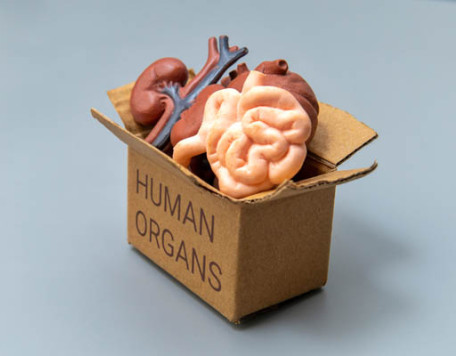© Pint of Science, 2025. All rights reserved.
Have you ever wondered what makes people aggressive? Or how your psychological well-being might be affected by war? Perhaps you even have a morbid curiosity about the mind of a sex offender? We’ll have expert researchers answering all these questions and more at this more controversial Pint of Science event! (Not suitable for under 18s)
"It's not something I chose" - Understanding paedophiles construction of sexual interest in children
Nicholas Blagden
(Lecturer)
Dr Nicholas Blagden is the Associate Head of Sexual Offences, Crime and Misconduct Research Unit (SOCAMRU) and Senior Lecturer in Forensic Psychology at Nottingham Trent University. He is a Chartered Psychologist and has worked and researched within the criminal justice system and HM Prison Service for many years. He is currently engaged in numerous collaborative forensic projects with NTU, HMPPS, Institute for Mental Health, Ontario, Canada and Correctional Services Australia. He has published widely in international journals and disseminated research at international conferences.
Predicting "unpredictable" Aggression
Dr. Claire Lawrence
(Associate Professor)
When we think of aggressive people, we often visualise a violent offender: Someone who is different to ‘us’. Violence and aggression, when it occurs, therefore often feels unpredictable. This talk will look at individual differences in the things that make us aggressive. On a whistle-stop tour examining why most of us act aggressively in some form, we will ask why do some people act aggressively more frequently and cause more harm. It will also consider why do aggressive behaviours persist when they are seemingly so detrimental.
From victims to survivors - recovery and well-being among genocide and war-affected individuals
Dr. Laura Blackie
(Assistant Professor)
Can an individual’s belief in their ability to adjust and change in the aftermath of adversity have a protective role in managing symptoms of distress? To answer this question, I will draw on my fieldwork in Rwanda with those affected by genocide and with Sri Lankans affected by the civil war. Their responses show that the adoption of a positive mindset in the face of psychological distress was related to lower functional impairment and enhanced life satisfaction. I’ll end by exploring the applications of this work and the risks it might pose.
Map data © OpenStreetMap contributors.
Other Canal House events
2025-05-21
CTRL + P: Printing the Future
Canal House
48-52 Canal St, Nottingham, NG1 7EH, United Kingdom
2025-05-20
Sex, Blood and Sausage Rolls
Canal House
48-52 Canal St, Nottingham, NG1 7EH, United Kingdom



